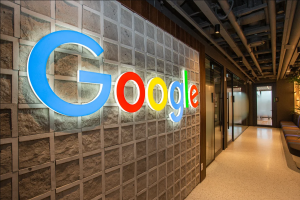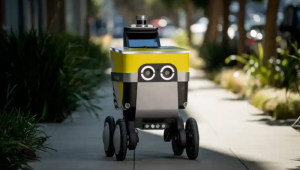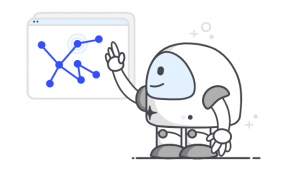I Actually Agree: An iPhone Recall is Ridiculous
In case you haven’t heard, the idea that the iPhone 4 should be recalled over the antennae bridge issue is getting all sorts of play this week.
A couple of weeks ago, I introduced the idea here that part of the blowback that Apple is currently experiencing over the iPhone 4 is what happens when an early adopter product experiences mainstream adoption:
As we learned from the lessons of Friendfeed, graphed so succinctly by Louis Gray in his Early Adopter Life Cycle chart, your early adopter community will always turn on you eventually. Apple seems to have defied these odds, to a certain extent, but they’re face with a whole new problem: what happens when your products designed for the early adopter reach mainstream acceptance?
We in the early adopter communities know that when you have a service or product you like, you’re somewhat forgiving of the minor quirks and bugs. As Louis says: “The adopter will not only be a frequent user of the service, but will track other posts or comments about it everywhere, and repeat the agreed upon talking points. Should they actually find a major issue with the product, they will e-mail or call the developers directly, rather than making the issues public.”
Here’s the question, then for us with knowlege of both of these worlds. Does Louis Gray’s life cycle of early adopters break down when it hits the mainstream? Or is Apple, as a company, hitting the dreaded latter stages of the lifecycle with a portion of it’s base: Entitlement and Migration?
I compared the whole thing to the early days when Facebook started getting it’s first waves of Entitlement blowback over Project Beacon, but since the post went out, we’re starting to see signs of the final stage of Early Adopter Behavior: Migration. Noted Apple fan-boy Louis Gray has finally started his migration from that Apple eco-system:
I switched to Android because I am extending my move away from the desktop and more to the cloud. iTunes does not deserve to be the core of my device any more, as it is simply a utility to rent films and get new apps for the iPad. I do believe the Web to be my future hub, and Google is preparing for that world, while Apple is not. Their devices do great work to get to the Web easily, but once there, I have almost always been pointed to other providers, so now, with Android, for the most part, I can just go to the source.
A bet on iPhone 4 today may be a vote for the best phone of today. But a bet on Android is a bet on the future. I am betting on an ecosystem and an application environment that encourages best of breed developers to move their product to a growing population of smartphones, and I expect to reap the benefits.
Of course, all this feeds into the hysteria stirred up early this morning by Consumer Reports, and that they don’t recommend the iPhone 4 as, you know, a device to make phone calls with. While I certainly support their decision to make that recommendation to their readers, I think the leapfrog that the blogosphere has taken where they’d demanding a recall (or intimating that it’s inevitable) is foolhardy.
![]() Anton Wahlman pointed that out this morning here at SiliconANGLE:
Anton Wahlman pointed that out this morning here at SiliconANGLE:
The rumors about an Apple iPhone 4 recall has to be one of the most useless ideas in recent technology memory. There is nothing about the design flaw that could be fixed in any recall, short of rebuilding the phone from scratch or redesigning a whole new phone, which would take one year or perhaps more. It would be totally counter-productive for Apple and its customers alike.
The people who had the phone from the very first moment it became available, before the widespread reports of the antenna issue never seemed to notice it until it became a big media story. Since then, it has become more of a party trick for those without a protective cover: "See, look at what happens if I put my finger right here."
Bottom line: Sensational journalism is often unfair. I feel for Apple. Let’s all hope ambulance-chasing lawyers don’t get their pound of flesh from this non-issue. We don’t need another John Edwards.
That doesn’t mean that I believe the issue shouldn’t have been addressed at all by Consumer Reports, or that their recommendation was a bad one. Jesse Stay earlier today dared his readers to name a single phone better than the iPhone 4.
I had a very simple response: the iPhone 3.
The point Consumer Reports is driving at (and I think I’m probably in the minority on this by agreeing with it, at least in our community), is that the upgrade isn’t worth it if the phone doesn’t work as a phone.
Jesse, and many others who are defending Apple, contend that “the thing that people aren’t realizing is that the definition of "phone" has changed for most of
society. For those buying these types of devices they’re not looking for just a phone.”
Jesse went on to say that “It’s stupid to not recommend it solely on phone functionality.”
I disagree with that statement strongly, as do the global usage numbers for mobile phones. The definition of phone has changed for a minority of society. Most people still use a phone for texting and calls -something for which a smartphone is not required (otherwise, we wouldn’t call them smartphones, but phones, since no one would own a "dumb" phone).
Ask yourself: who reads Consumer Reports? Certainly not us, the early adopters.
It’s people like my dad who read it religiously before making a purchase. People who use phones to, you know, make phone calls with.
Do you read CR regularly? I, unfortunately, have since my dad has a lifetime subscription, and all while growing up it was the magazine that sat on the tank in the “throne room.” The way they do these reviews is to take all the top contenders in a market segment and rate them against one another based on the criteria that the product should perform.
![]() For instance, in the car department, I remember a series they did on the emerging class of sport utility vehicles back when the Suzuki Samurai was a new car. The Samurai had this really bad problem that whenever you drove it around a corner at speeds exceeding 25 miles per hour (I believe it was), it tipped over.
For instance, in the car department, I remember a series they did on the emerging class of sport utility vehicles back when the Suzuki Samurai was a new car. The Samurai had this really bad problem that whenever you drove it around a corner at speeds exceeding 25 miles per hour (I believe it was), it tipped over.
They found they weren’t able to recommend the vehicle.
Do most people drive around corners at 25 MPH? No. That’s usually an unsafe speed to corner.
Other than that, though, do the car’s wheels all go in the same direction? Yes. Do all the amenities work well? Yes. Are there hidden engine or transmission problems that pop up at 25k miles? No.
Other than the fact that it tips over when driven in suboptimal conditions, is it a bad car? No. Did CR recommend not buying it? Yes.
This is the same thing with Apple.
I agree that a recall on the product is probably a dumb idea, and a lot more is being made of this than is probably necessary, but I think that for CR and their audience, they probably made the right call. When measured against everything else that’s out there (and previous versions of the same phone), they all outclass the iPhone 4 in one way: they can make phone calls reliably. Even if you’re left handed.
“But What About the Features?”
Everyone’s got a favorite feature of the iPhone that makes it superior to every other bit of consumer tech that ever came before it. Dan Frommer had nothing but glowing things to say about the iPhone this morning in his post titled “Sorry, But This Whole iPhone 4 Antenna Thing Is A Non-Issue And Will Blow Over (AAPL).”
“Have you seen the "retina" display? Have you tried FaceTime? Have you played a game or read an e-book on the thing? Seriously, it’s a great gadget. What, are you going to replace it with a BlackBerry Bold or something?”
Personal anecdotes about the features and apps seem to be the en vogue response as to why the iPhone 4 is just the bees knees.
That doesn’t fly with me, though. You can even spin the ability to easily flip a Suzuki Samurai as a positive, though. A good buddy of mine did. He would occasionally recount the tale of when he lived in Utah, which amongst many other things is known for being a state with a very ultra-conservative stance on traffic crimes. At the time, apparently, driving without valid insurance was a jailable offense (a felony, if memory serves).
My friend’s older sister couldn’t afford liability insurance, so when one day my friend and his older sister were broadsided by an eighteen-wheeler, it was actually lucky that it happened in a Suzuki Samurai. The accident happened at high speeds, and as you might guess, the Samurai rolled over several times, and eventually rolled over on it’s wheels.
“Are you OK,” my friend’s sister asked him.
He nodded, and before the other driver could react, she simply drove and continued on to their destination.
Consumer Reports may have tested extensively how easily it rolls, but they never tested the durability of the vehicle. If the Suzuki Samurai had as loyal of a fanbase as does the iPhone 4, this story would have been on the front page of every trade magazine and whatever the equivalent of Techmeme would be in the mid 1990’s. When my friend would have inevitably sent an email to the charismatic CEO of Suzuki, he would have gotten a congratulatory one sentence email implying how great he was for having the brains to buy a Samurai, despite all the other common-sense reasons why he probably shouldn’t.
“There’s a Difference Between Cars and Phones, Though.”
Indeed there is. I’m not implying that anyone is in danger of dying from bad phone call reception due to being left handed. I’m not even trying to make a case for an iPhone 4 recall (and it’s not an accident that the example I chose to illustrate this failed to meet the requirements for a recall).
I am saying that it may be a bit out of line for Apple apologists to continue to slam Consumer Reports for serving the interests of their readers. For their market, it’s important that a phone be of the highest calibre, and be able to actually, you know, make phone calls. This may seem pedestrian and silly to us much more advanced species known as early adopters, but that’s how some people in this world work.
A message from John Furrier, co-founder of SiliconANGLE:
Your vote of support is important to us and it helps us keep the content FREE.
One click below supports our mission to provide free, deep, and relevant content.
Join our community on YouTube
Join the community that includes more than 15,000 #CubeAlumni experts, including Amazon.com CEO Andy Jassy, Dell Technologies founder and CEO Michael Dell, Intel CEO Pat Gelsinger, and many more luminaries and experts.
THANK YOU













